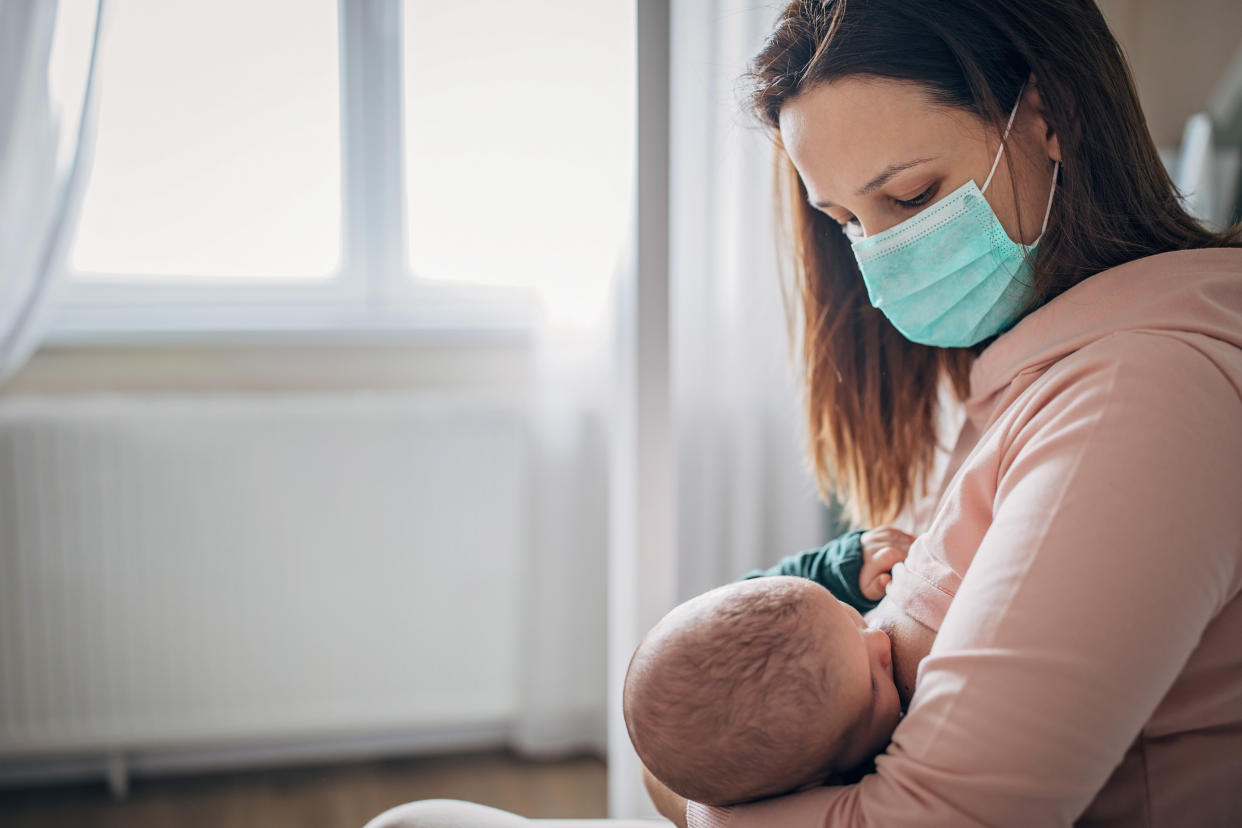Breast milk ice cubes could deliver coronavirus antibodies

The breast milk of coronavirus survivors could ward off the infection in vulnerable individuals, scientists have suggested.
After looking at 30 lactating women who tested positive for the infection, a team from Amsterdam University found the participants’ breast milk contained coronavirus-specific antibodies.
Antibodies are immune-fighting proteins that help destroy an invading virus and prevent it taking hold for a second time.
Read more: Soft singing 'no riskier than talking', coronavirus study finds
Administering the breast milk via ice cubes is thought to be more effective than drinking it due to the antibodies having more contact with mucous membranes – mucus-secreting tissues that line the respiratory tract and gut.
The scientists are recruiting 1,000 lactating women, who have not necessarily tested positive for the coronavirus, to better understand how common the antibodies are among nursing mothers.

Antibodies ‘attack the virus’
“Breast milk could possibly be used for risk groups when a second coronavirus wave occurs,” Professor Hans van Goudoever, from Amsterdam University’s Emma Children’s Hospital, said in a statement.
“We think that after drinking the milk, the antibodies attach themselves to the surface of our mucous membranes.
“There they attack the virus particles before they enter the body.”
Read more: Antibodies protect against second coronavirus infection, study suggests
When the immune system encounters a virus, cells work to create antibodies.
These lock onto the virus’ surface, neutralising or “marking” it for destruction by other immune cells.
When the infection is encountered for a second time, the immune system ramps up production of these “weapons”, preventing the virus from taking hold again.
This is the principle behind vaccines; exposing an individual to a harmless amount of an infection that allows the immune system to recognise it if it were to later invade the body.
Read more: Coronavirus linked to onset of type 1 diabetes in children
Concerns have been flagged as to how long coronavirus-antibodies last, which could hinder the effectiveness of any immunisation programme.
Hopes were raised, however, after a recent “remarkable” study. Scientists from the University of Washington found three people who had already overcome the coronavirus did not catch it again during a localised outbreak aboard a fishing vessel.
Blood samples revealed they had circulating antibodies, suggesting the immune-fighting proteins do ward off a second infection.

Breast milk ice cubes could protect care home residents
Breast milk is known to contain antibodies that protect newborns against a number of respiratory infections.
Laboratory studies have shown coronavirus-specific antibodies help to stop its spread.
Scientists from the University of California, San Diego, recently reported “there are no documented cases of transmission of infectious [coronaviruses] to the infant through breast milk”.
The World Health Organization has also stressed mothers who chose to breastfeed should continue to do so during the pandemic.
Speaking of why the breast milk should be given as an ice cube, scientist Britt van Keulen said: “You want the antibodies to be in contact with the mucous membranes for as long as possible to really create that protective layer.
“When you drink it, it disappears quickly.
“Our idea is to give it in the form of ice cubes, so it takes a little longer, there is longer contact with the mucous membranes to create that layer,” as reported by The Times.
Of the thirty women who tested positive for the coronavirus, their breast-milk antibodies were not destroyed after pasteurisation, which helps guarantee it is safe for consumption.
Limited supplies of breast milk mean any future treatments will be given to vulnerable individuals – like care home residents – rather than the general population, added the scientists.
Professor van Goudoever believes giving residents breast milk ice cubes for 10 days would be sufficient for the coronavirus to “leave the nursing home”.
A spokesperson for Emma Children’s Hospital told Newsweek an inbox dedicated to the breast-milk drive has received at least 5,000 messages since the scientists appeared on local television on 19 August.
Participants will be asked to donate 100ml of breast milk for testing.
Samples that do not contain coronavirus antibodies will be stored for future research, with the women’s permission, added the scientists.



